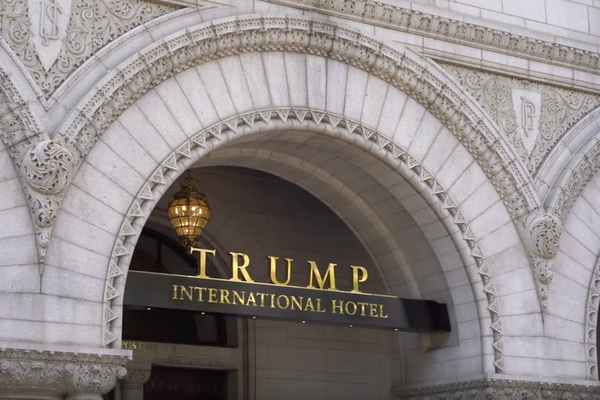Why Can’t Trump Admit Mistakes? It’s an Old Strategy Explained by Hitler

President Trump never admits a mistake.
Even when the mistake is blatantly obvious, Trump still refuses to fess up. He goes to absurd lengths to attempt to falsely explain it away.
A typical example is the recent clamor over Trump’s obvious mistake of warning the nation that the state of Alabama was in the path of Hurricane Dorian and was at risk of suffering severe damage. The National Weather Service immediately issued a correction saying that Alabama, in fact, was not in the path of the hurricane and thus was not at risk of suffering any damage.
But Trump could not admit he was wrong. Instead, Trump continued to insist that he was right.
In a surreal displayfrom the Oval Office of the White House, Trump displayed to the nation a map of the path of the hurricane that obviously had been doctored with a Sharpie pen to extend the hurricane’s path to inaccurately include the state of Alabama.
Why can’t Trump simply admit that he made a mistake? Why does Trump feel the need to go to such great lengths to insist he was not wrong?
In his 1924 book, “Mein Kampf,” Hitler describedhis strategy for how his then-neophyte Nazi party could seize power through the use of propaganda and psychological manipulation.
According to Hitler's demented worldview, a leader must “fill people with blind faith” that he and his party doctrine are absolutely and unquestionably correct. The leader must create an army of “intellectually less capable men” who are instilled with “rigid discipline and fanatical faith” for the cause, and each follower must be “taught to stake his life for it without reservation.”
To keep the flock obedient, the leader and the party must always appear to be absolutely correct. The party’s pronouncements must be “unshakable,” “dogmatic,” “creedlike,” and always seem like a “granite principle.”
Objective truth and reality are disregarded. It is far more important to cling to what was said initially in order to maintain the impression of always being right, even if the original pronouncement was flatly wrong. As Hitler states, “[I]t is less harmful to retain a formulation, even if it should not entirely correspond to reality, than by improving it” to correct the error.
The problem with correcting errors is that this leads to “evil consequences.” Once the faithful realize that the doctrine from on high is not always unquestionably correct, then people may begin to question it. This can lead to “discussion,” “squabbles,” “uncertainty,” and “doubt.”
Questioning authority, of course, is abhorrent to authoritarian rule. Hitler warnedthat the party must avoid “all actions that splinter and create uncertainty.”
Hitler considered the Catholic Church as a model of this principle. Even though the doctrine of the Churchconflicted with proven science, the Church was “nonetheless unwilling to sacrifice so much as one little syllable of its dogmas.”
The lesson is that when the leader or the party is questioned, the response must be to fight. Fight everything. Concede nothing. Maintain a unified front. Project total power and absolute certainty.
The purpose of Hitler’s approach wasto condition the people to mindlessly follow the leader regardless of the leader’s policies or conduct. Democracy, however, is exactly the opposite. In a democracy, the people continuously assess the leader, and if the performance is unsatisfactory, the people can elect a new leader.
Trump, however, is following Hitler’s approach.
Trump is seeking to maintain his army of supporters based upon “blind faith” in Trump himself rather than upon reason. Trump has sold himself to his followers asa highly successful, incredibly wealthy, “very stable genius.”
So what happens when Trump makes an idiotic mistake? Deny it. Fight like mad. Maintain the unified front. The truth does not matter one bit.
Admitting a mistake could very well lead to evil consequences. Once the Trump faithful realize that Trump does indeed make foolish mistakes, they might very well begin to question the legitimacy of the overall Trump mystique.
This could lead to discussion, squabbles, uncertainty, and doubt. Maybe Trump is not a genius after all. Maybe Trump is not even very smart. In fact, maybe Trump is an outright fool.
And why in the world would anyone re-elect a fool?
No wonder Trump goes to such extraordinary lengths to never admit a mistake.
One little crack in the façade could cause the entire edifice to crumble.